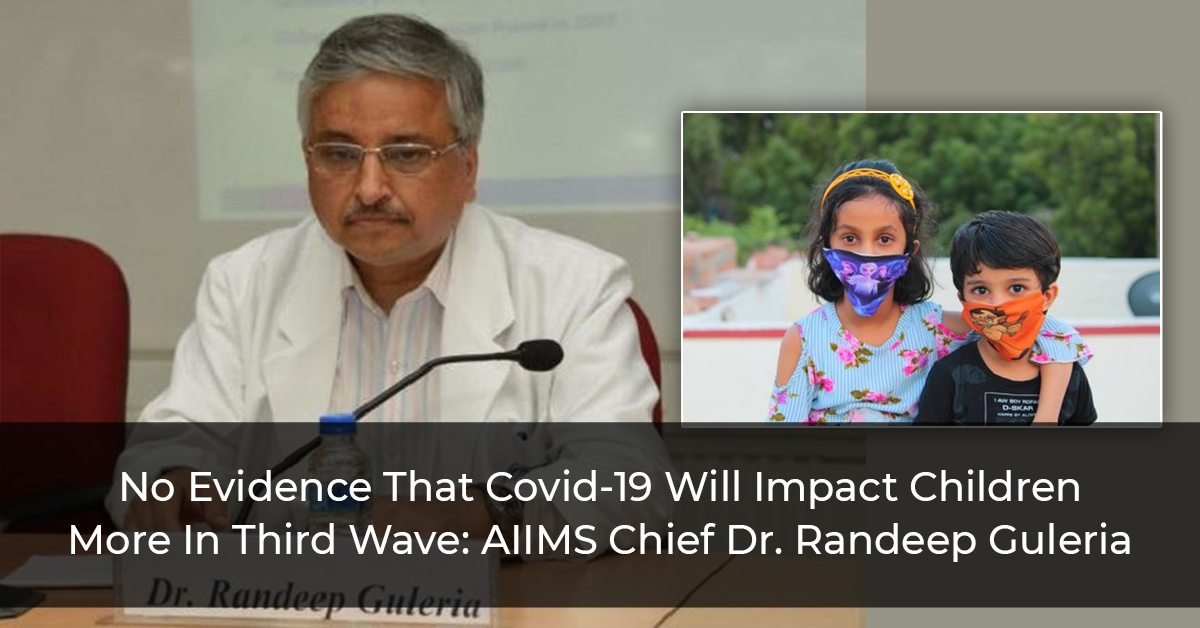Highlights:
- Children were only marginally affected in both the first and second waves of the pandemic, according to Guleria, but there was a lot of collateral damage.
- The comments come as some experts emphasise the importance of preparation, warning that the third wave may impact children more than adults.
According to AIIMS Director Randeep Guleria, there is no evidence that children will be more seriously affected in COVID-19’s third wave.
In response to a question about the effect of a third wave on children, Mr Guleria said that there is no indication that children will be infected severely or that there will be more cases in the forthcoming COVID-19 wave.
The AIIMS Director said, “Data from the first and second waves shows that children are normally safe from Covid, and even if they do contract it, it is just a mild infection.”
According to him, children, on the other hand, have experienced collateral damage as a result of the pandemic due to gender disparities in education, stress and mental health problems, mobile dependence/addiction, and missed educational opportunities.
Children’s education in rural areas has also been harmed.
He further explained, “When we compare the data from the first and second waves, we can see that they are very similar, indicating that children are normally protected and, if they do get it, it is just a mild infection. And since the virus hasn’t changed, there’s no reason to believe that children would be more vulnerable in the third wave.”
Also Read: First Tauktae, Now Yaas: India Is Being Hammered By Second Severe Storm In Ten Days
There’s also the theory that the virus reaches the body via ACE receptors, which are found relatively less in children than in adults.
According to him, this is a hypothesis as to why the infection has been less prevalent among children.
Dr. Randeep Guleria clarified, “Children have not been affected so far, according to proponents of this theory, so they could be the most affected in the third wave. However, there is no indication that children will be infected severely or that there will be more cases in the next wave.”
The remarks come as some experts stress the importance of preparation, warning that children might be more affected by the third wave than adults.
The Indian Academy of Paediatrics recently stated that, while children tend to be as vulnerable as adults, the third wave is “extremely unlikely” to primarily or exclusively affect children.
With a third COVID-19 wave expected to reach the country, the National Commission for Protection of Child Rights (NCPCR) has advised the Centre and states to step up their preparations to protect children and neonatals.
NCPCR chairperson Priyank Kanoongo wrote to Union Health Secretary Rajesh Bhushan, saying the ongoing second wave of the COVID-19 pandemic is affecting a slightly higher number of younger people, and a third wave is expected to reach the country, affecting children as well.
Priyank Kanoongo requested that the health minister issue appropriate instructions for the service and ambulances to plan specifically for neonatals and children, highlighting the urgent need to restructure the National Emergency Transport Service (NETS).


